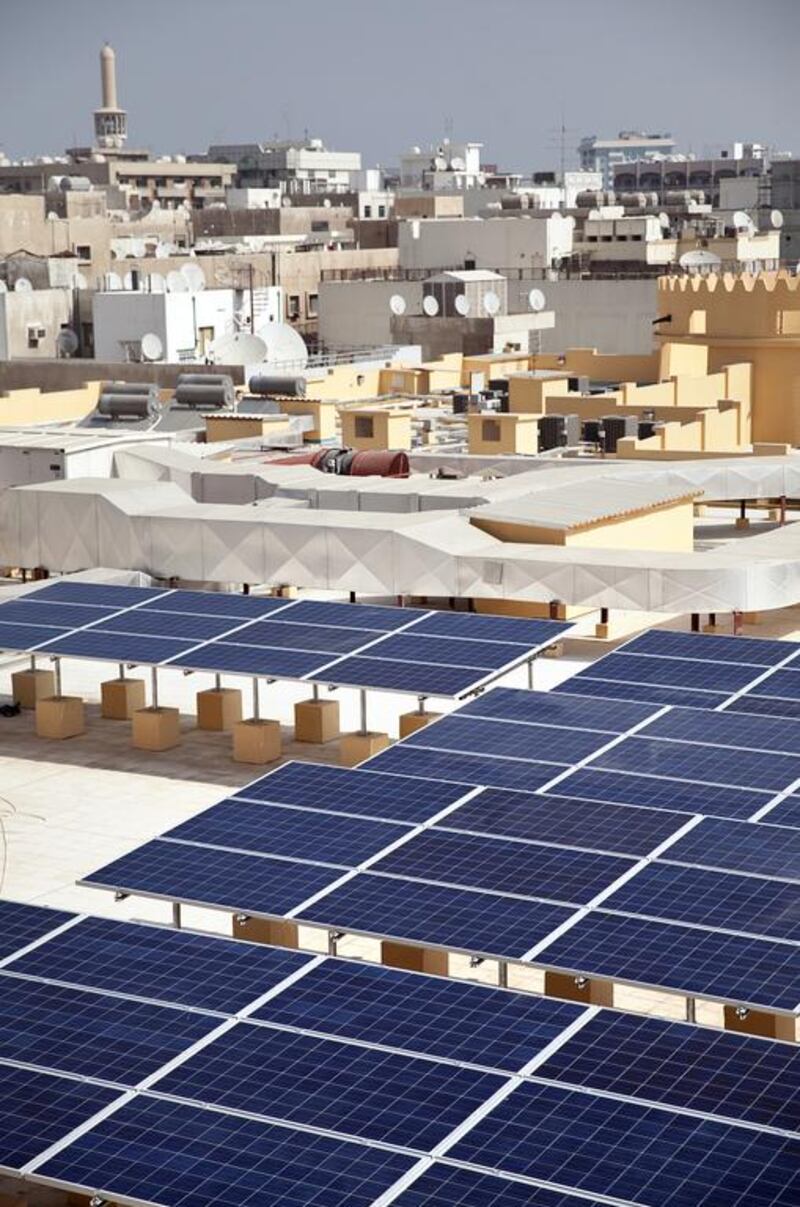ABU DHABI // The UAE has planned to increase the country’s clean energy infrastructure with ambitious solar energy goals, despite some gaps in development.
Dubai Electricity and Water Authority (Dewa) has increased its commitment to clean energy development by tripling its target for 2030, announcing it will source 15 per cent of its energy from renewable sources, mostly solar, up from its original pledge of five per cent.
It made the announcement on Wednesday during a World Future Energy Summit talk entitled “UAE: building a clean economy future” as part of Abu Dhabi Sustainability Week.
In the short term Dewa said clean energy will contribute to seven per cent of the power grid by 2020 — a six per cent hike.
“For me this makes sense, it is more economically sound to divert to renewable and it is part of building this economy for the future,” said Saeed Al Tayer, chief executive of Dewa.
In 2016, the emirate will float a tender for an additional 500 megawatts of solar power for a grid total of 713 generated from photovoltaics.
Energy generated by photovoltaics – or solar panels – in 2016 will be enough to power more than 700,000 homes.
Mr Al Tayer said adding renewables to the energy mix is key in building cities of the future.
“Adding to the fuel mix is the right solution,” he said. “The cost will be reduced, my footprint will be lower and my efficiency will be higher.”
He and Razan Al Mubarak, secretary-general of the Environment Agency Abu Dhabi, said, however, that consumer consumption habits must also change, as adjusting energy demand is as important to reducing the UAE’s carbon footprint.
“While diversification of energy supply is key, according to some of the calculations we’ve done here, demand-side management alone will reduce emissions by half,” Ms Al Mubarak said.
Changing consumption habits is one of the most efficient and least costly ways to protect the environment, she added.
She said that nationwide awareness campaigns about energy policies offer people the chance to understand how their everyday decisions can have an immediate impact on the environment.“The speed of development here is a challenge,” Ms Al Mubarak said. “It’s a challenge to get the right infrastructure at the right time. We’ve got a great track record and we continue to improve that but there are gaps, and those gaps do affect the environment.”
As an example she cited the case against the depletion of groundwater reserves and the countries’ heavy reliance on energy-intensive desalination plants for water.
Another challenge was the need for the development of a better sewage infrastructure, which more efficiently deals with waste and pollutant treatment.
“For us, planning is extremely important and it’s a matter of coming up with a policy that makes everyone happy,” Ms Al Mubarak said.
The Environment Agency has already been involved with the establishment of the Environment Vision 2030 and Government coalitions, which integrates the environment as a complementary factor.
“What we really need and what we continue to build are these coalitions between the economic sectors and environmental sectors,” Ms Al Mubarak said.
nalwasmi@thenational.ae






